Stories from Iraq
Healing the wounds of war: Restoring health care in Iraq
For 20 years, Dr Abdullah headed up the primary health clinic in Wana, Iraq, which served nearly 14,000 people from 28 surrounding villages.
Life was good—stable and secure.
Then one day in 2014, armed groups descended on the city and took control of Wana. The clinic was targeted and medical staff had to flee with only a moment’s notice.
“I was so scared. I managed to escape, but as soon as I could, I came back.”
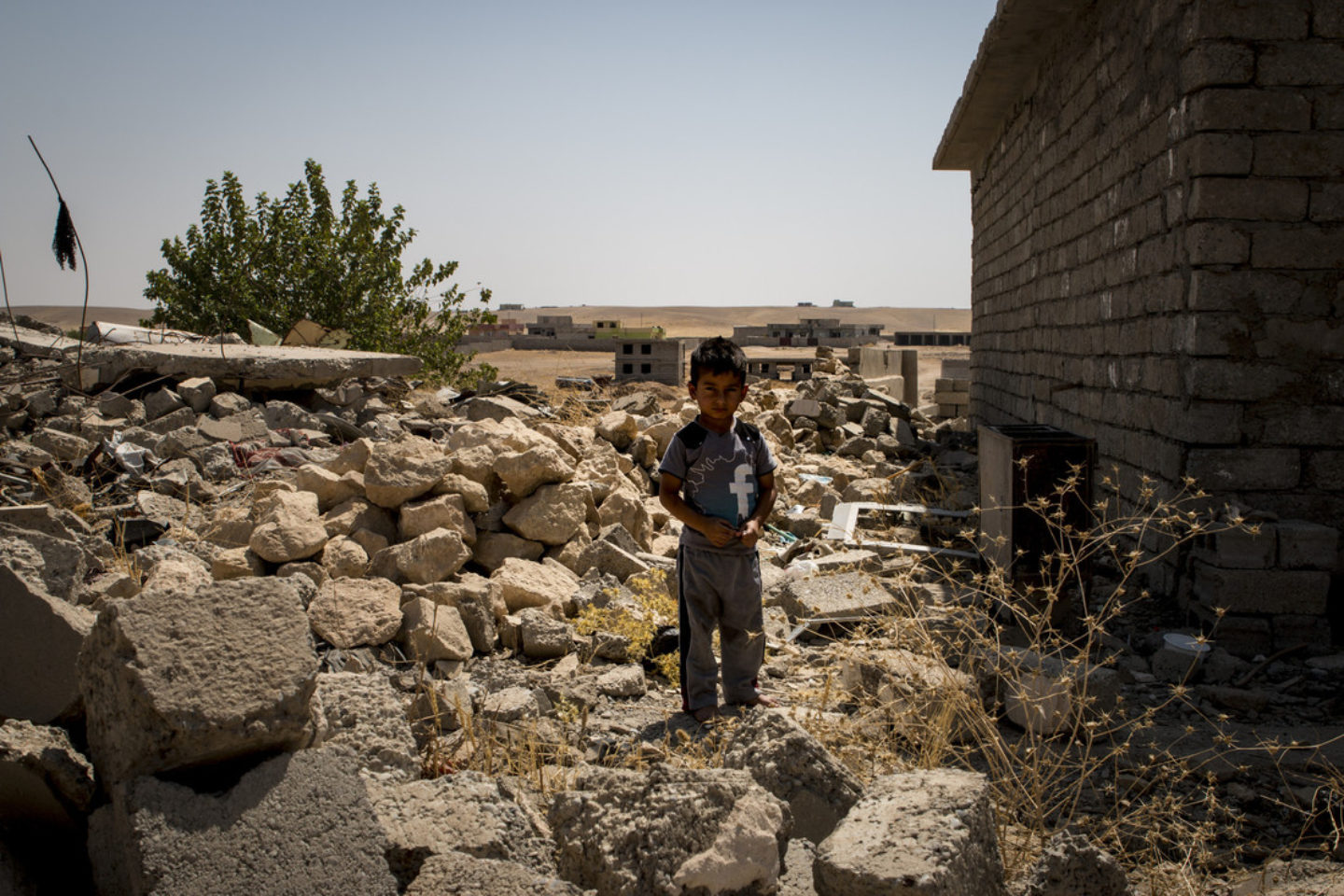
Dr Abdullah’s instinct was to return home. He wanted to help his community amidst the conflict. “These are my people and this is my future,” he remembers thinking at the time.
But when he returned to the clinic, everything was destroyed. He broke down in tears.
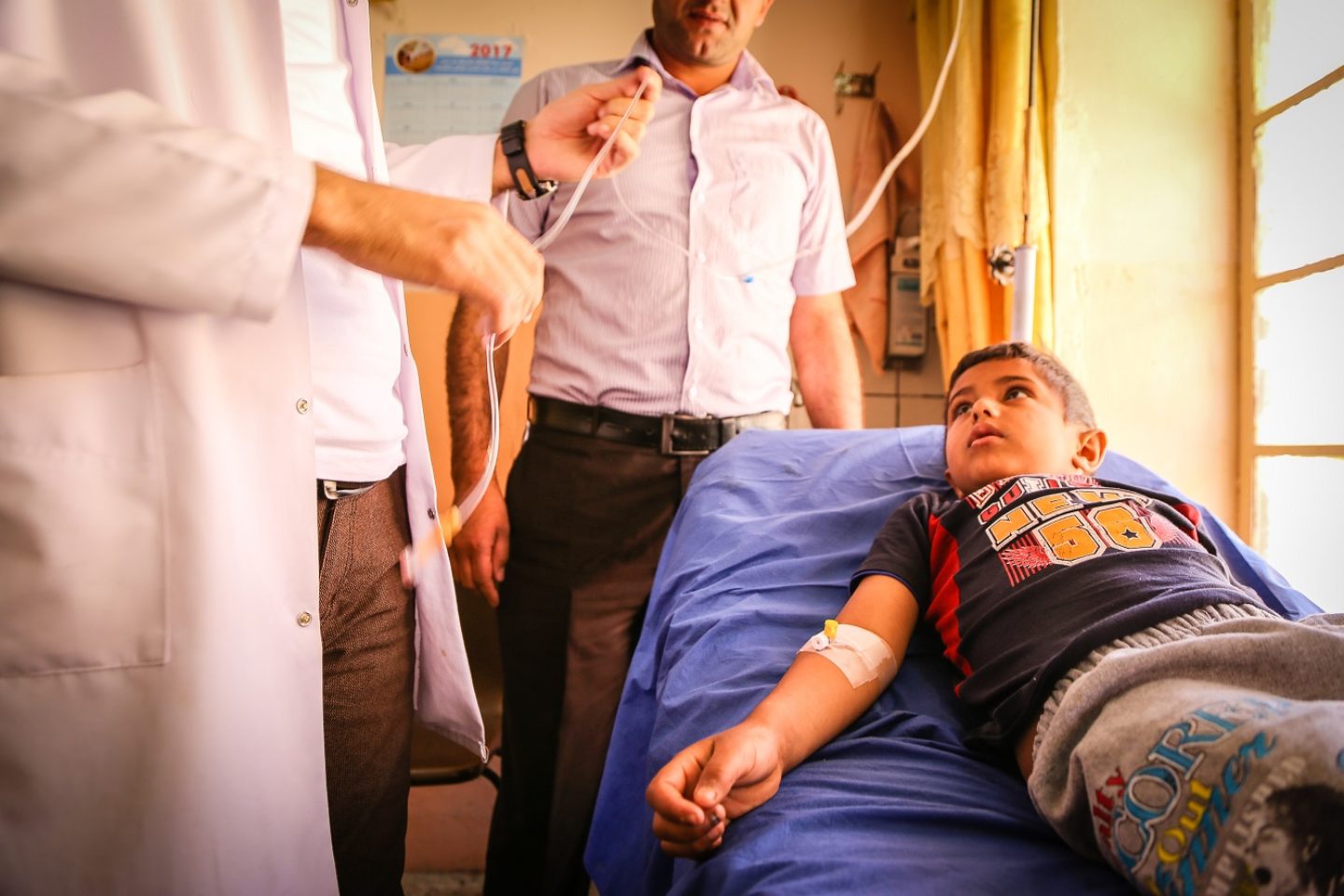
“Our medicines had been tossed outside and many things had been stolen. Together with some staff, we started cleaning up and trying to make the clinic operational again. I brought in furniture from my home and even used my own money to try to repair the clinic.”
Dr Abdullah ran his clinic as best as he could in the following months. However, the clinic was not able to serve the community at full capacity after the devastating attack. They needed outside support.
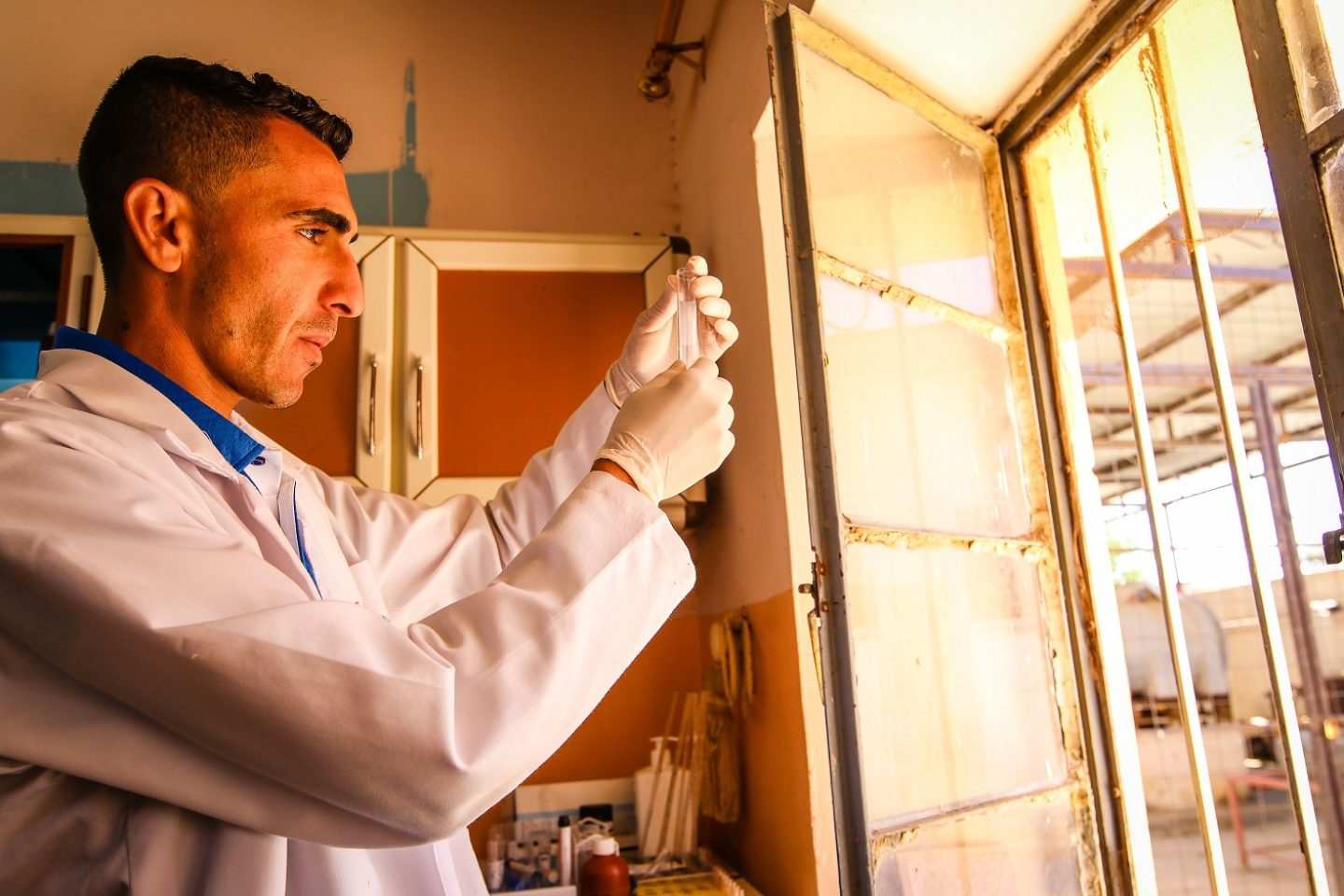
That’s when Medair came alongside Dr Abdullah and his team to help supply medicines, extra staff, training, and equipment needed to support the clinic and ensure their vital services continued.
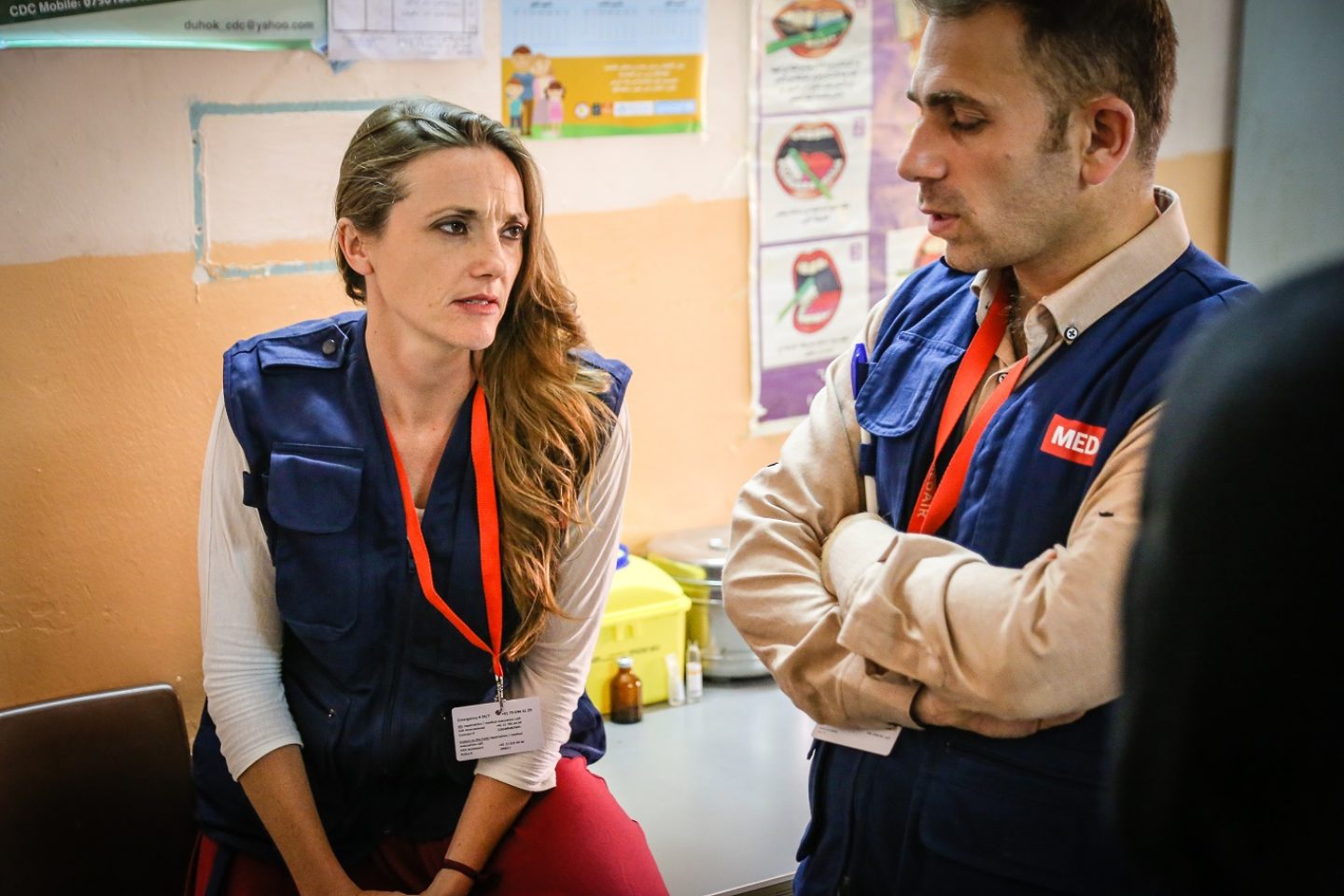
“When we support clinics like this one in Wana, we not only want to serve patients, we also want to strengthen the health system,” says Janet Luigjes, Project Manager for the Wana Clinic. “It’s different for each country and even for each clinic, so we look at what is needed and fill in the gaps.”
“When Medair came, I was so happy,” remembers Dr Abdullah. “They brought us supplies we desperately needed like lab equipment, fuel for the ambulance, and kerosene for the generator. Without Medair we would have had to close our doors.”
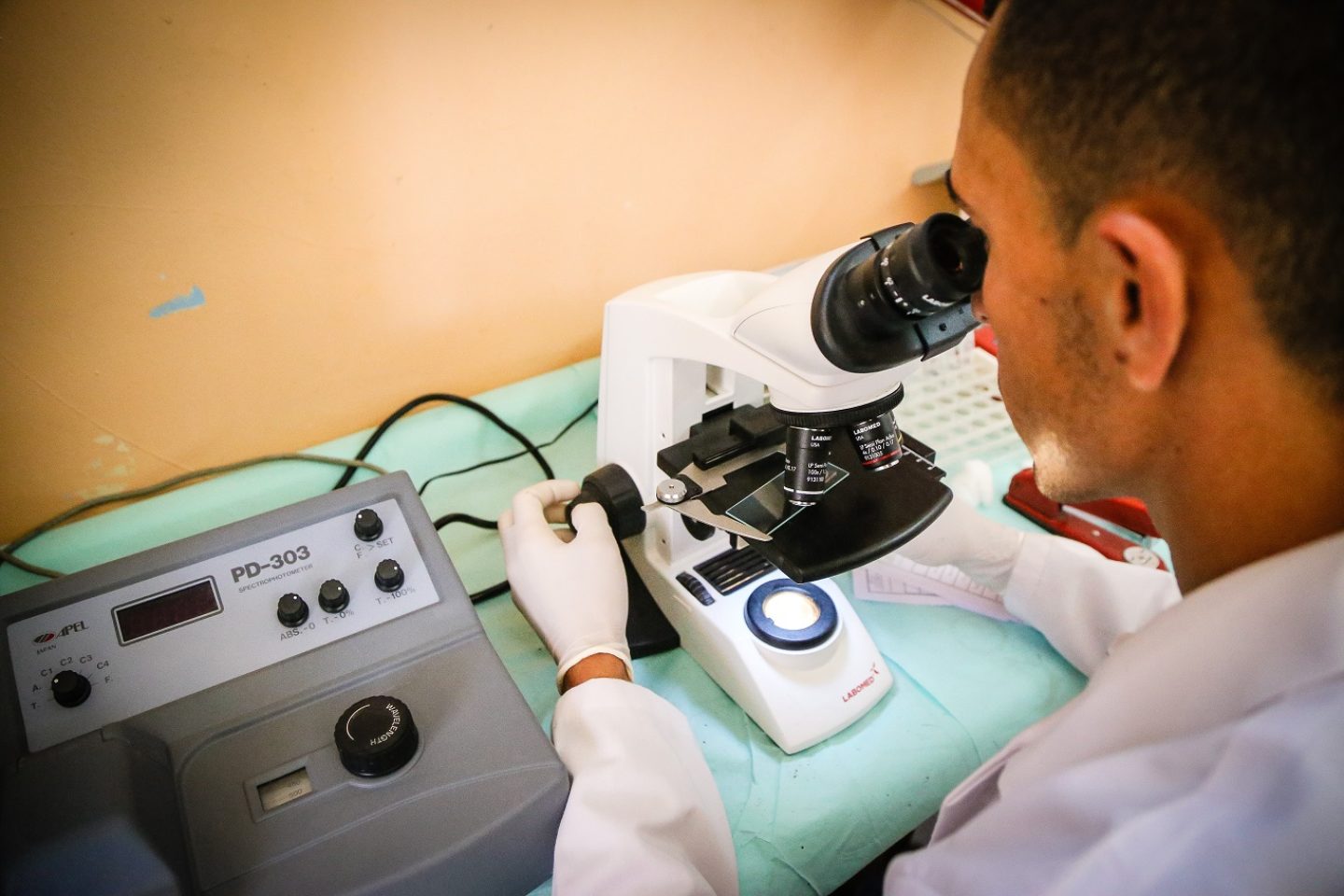
Collaboration was key. “Together we became very organised,” says Dr Abdullah. “We no longer had medicines, but Medair could supply them for us. They didn’t have a lab, but we had a working lab. We had no female doctors, but they provided the doctors. We completed each other and I am very proud of what we have achieved together.”
When life in Wana began to return back to normal and families were able to return to their homes, the ongoing conflict continued in nearby villages where the need for medical assistance was still high.
Dr Abdullah and his team became aware of people caught between the front lines of active fighting. There was no medical facility nearby and they were unable to travel to Wana because the journey was too dangerous.
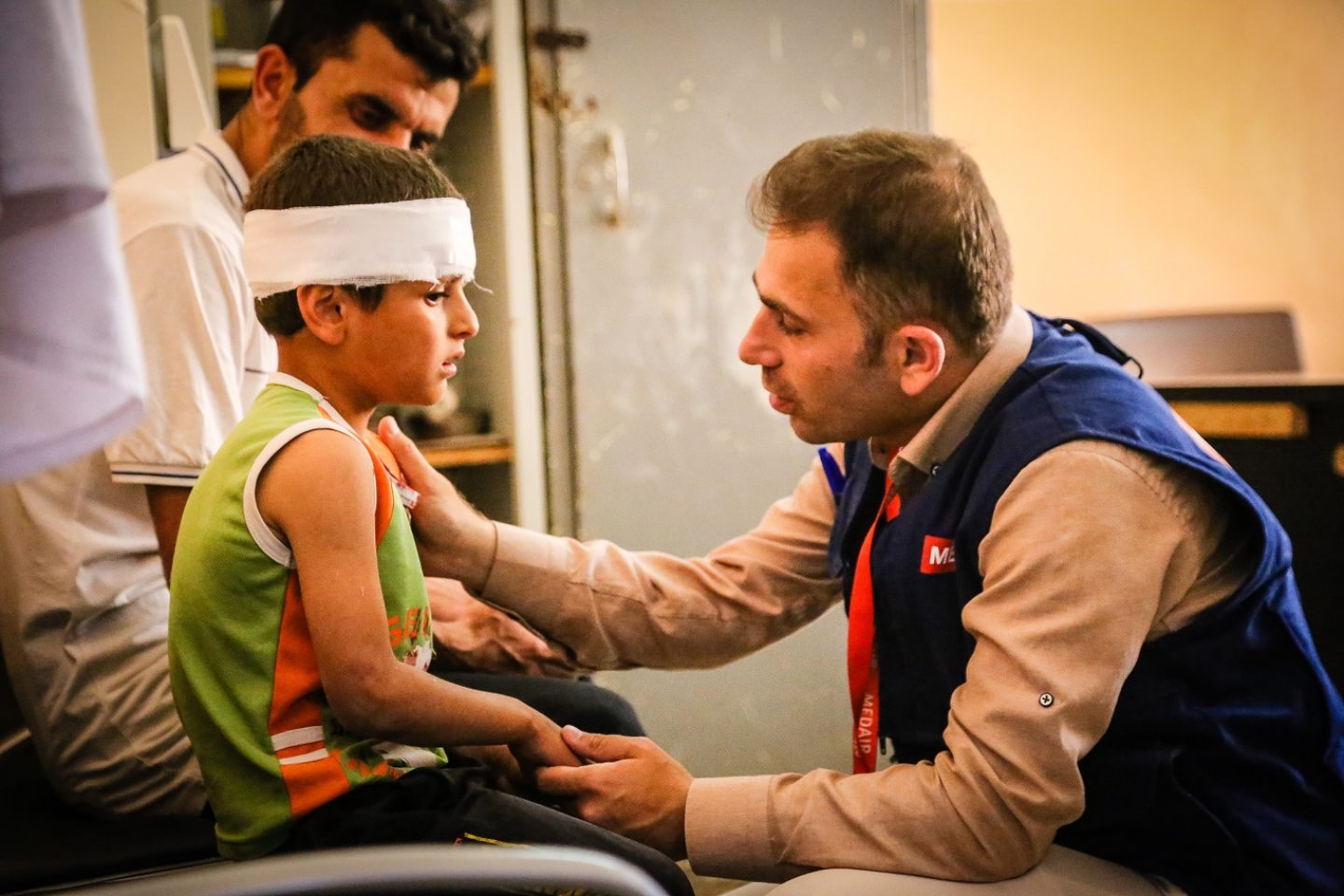
Dr Abdullah asked the Medair team for help to reach these people. A small team of doctors and nurses began travelling to the front lines to treat people in need of medical assistance who were trapped there.
“Medair worked very hard to get permission to go as close as possible to the front lines,” says Dr Abdullah. “No one else was going there and people were suffering.”
Dr Delbreen, Medair’s Health Officer, remembers his first day well. “People were walking two kilometres to see us,” he said. “If they were willing to do that, I was willing to take the risk and go there. We saw as many people as we could, even though we couldn’t stay very long. There were a lot of infections and skin diseases. Believe me, I can still remember each one of their faces.”
Medair continued to go back to the village to treat as many people as possible when they were allowed access. When there were urgent cases, Dr Abdullah arranged an ambulance to transport patients to his clinic.
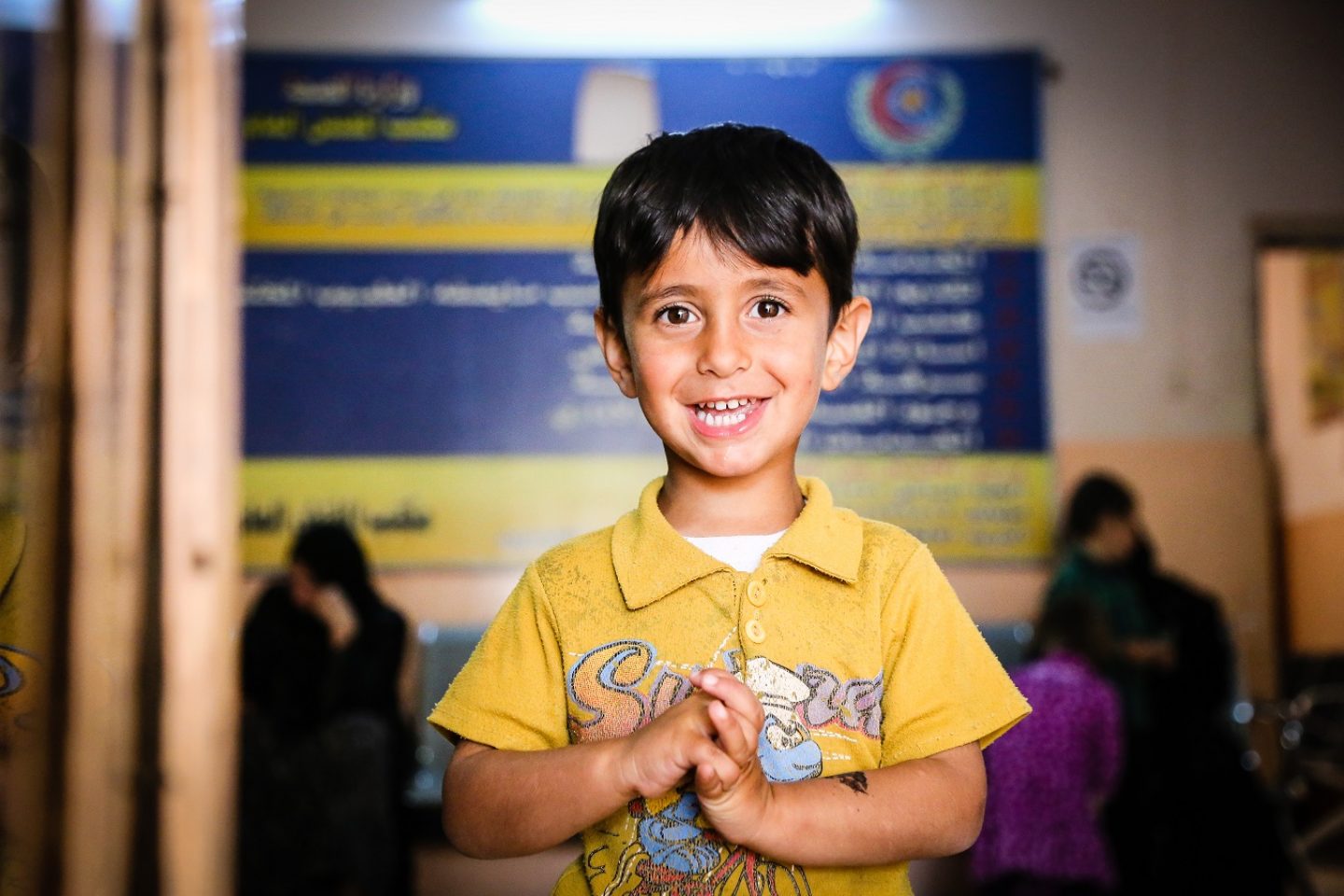
Now, after nearly two years, the Wana Clinic and the local health authority are once again able to operate at full capacity. Medair’s work is done. However, the work of Dr Abdullah and his team continues. He can’t imagine his life without the clinic.
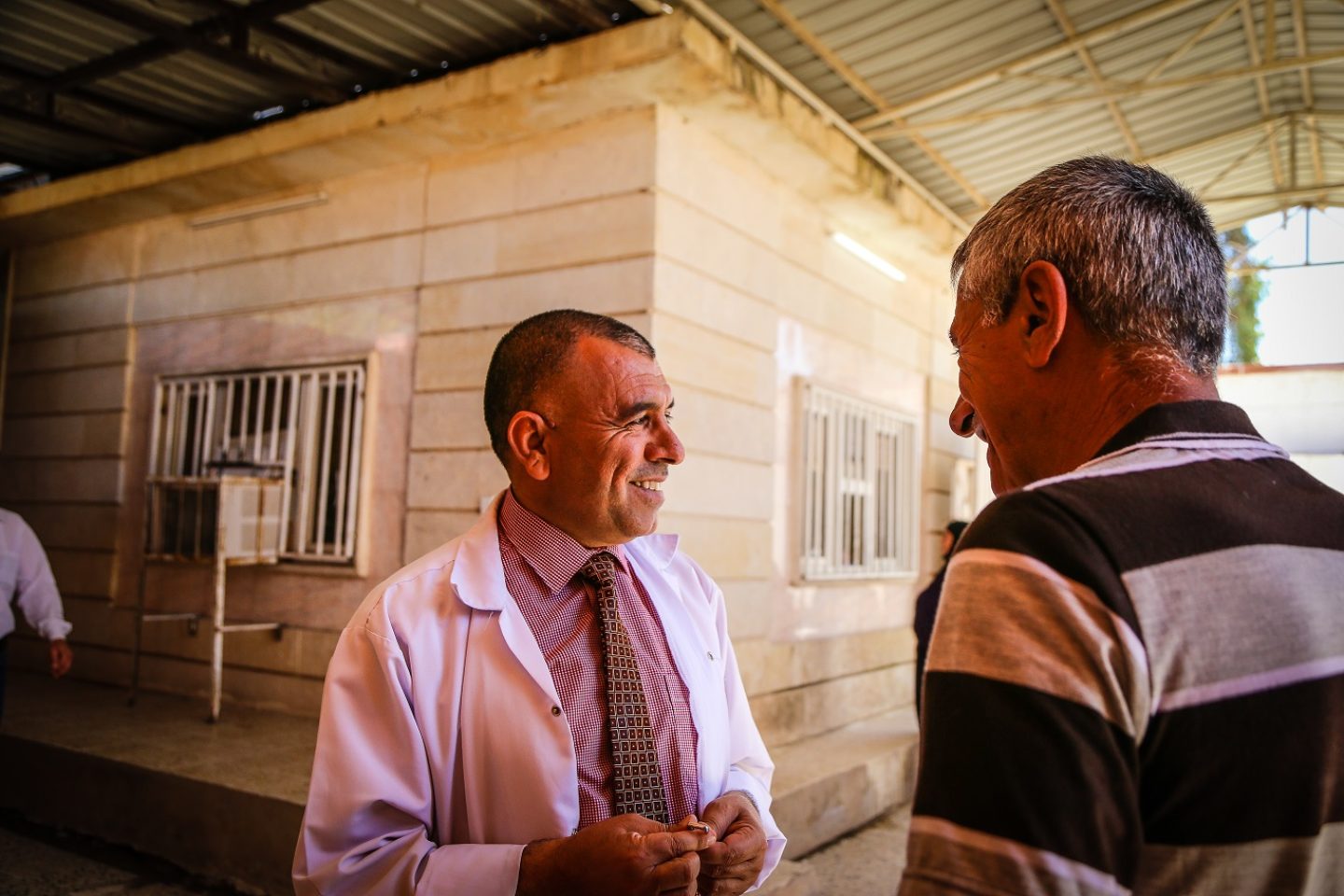
“I’ve worked here for 20 years; this clinic means everything to me. I work here because I want to serve my people. There is much work still to be done. My dream is to one day see this primary health clinic become a hospital.”
The two teams said their goodbyes with some feelings of sadness after working so diligently together for the Iraqi people. But this milestone was also an opportunity for celebration—to recognise that the community and the clinic are strong enough to move forward on their own.
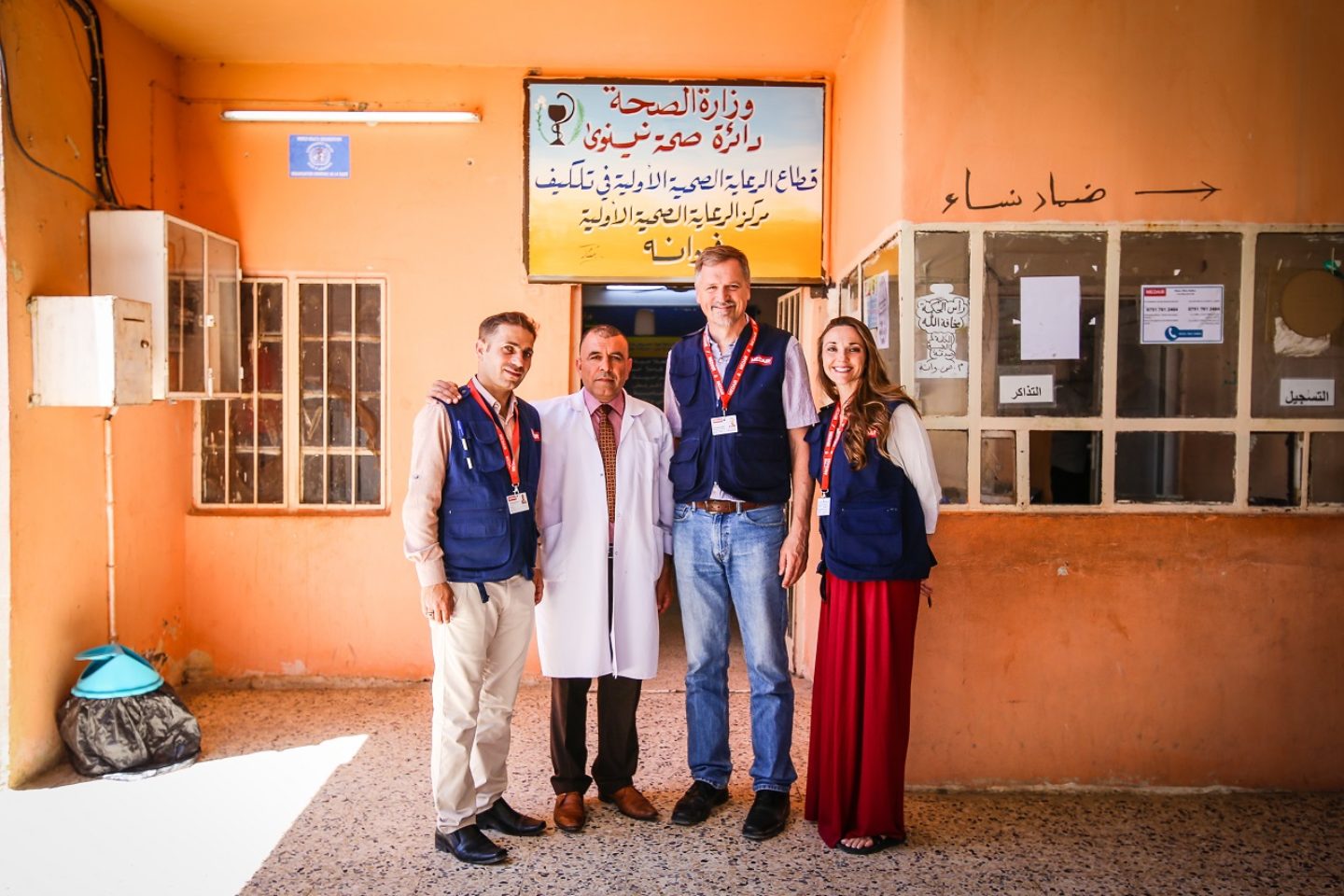
“We have become very close. I have written letters to all the authorities to say how much we have appreciated Medair. I feel very close to Medair, like we are one family,” says Dr Abdullah. “On behalf of our people we want to thank you very much.”
The Medair team stays in touch with Dr Abdullah and visits him occasionally. With new areas becoming accessible in Iraq, thousands of people now need their local health clinics to be restored. And so, the work continues.
Sue O’Connor is Medair’s Communications Officer in Iraq. For regular updates follow @Medair_ME on Twitter.
Medair’s work in Iraq is made possible by EU Civil Protection and Humanitarian Aid, US Agency for International Development, the International Humanitarian Fund, and generous private donors.
This content was produced with resources gathered by Medair field and headquarters staff. The views expressed herein are those solely of Medair and should not be taken, in any way, to reflect the official opinion of any other organisation.
